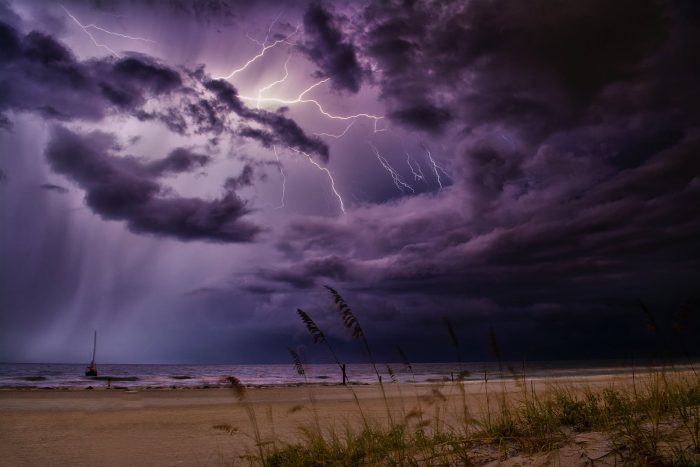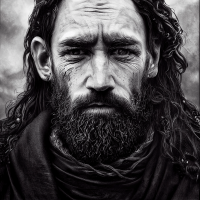The layered bloom of hills and streams
kingfisher shades beneath rose-colored clouds
mountain mist soaks my cotton bandana
dew penetrates my palm-bark coat
on my feet are traveling shoes
my hand holds an old vine staff
again I gaze beyond the dusty world
what more could I want in that land of dreams.*1
“Are you ok?” my mother asked anxiously.
“Huh?”
“Is everything ok?”
“Yeah. Why?”
“The shooting.”
“Oh, that. Yeah, fine. It was hundreds of kilometers from here.”
“I know, but…it’s just so terrible what happened. Heart breaking, really,” her voice cracked with sorrow.
“Yea, that was pretty bad.”
“I feel so bad for those kids and their families.”
“It was awful what happened,” I said flatly. And then we moved on to other things. Their upcoming trip. The latest Liverpool match. Since that day, she’s never brought the shooting up again.
What I didn’t tell her was that I didn’t care much. This was the first mass school shooting ever in Thailand, despite widespread gun ownership. Many of my colleagues were rattled. As for me, nope. It was a tragedy, but I’m losing no sleep over it. Why should I?
Every day, about 150,000 people die. On that day, October 6th, 2022, 37 died in Nong Bua Lomphu province. But why must I grieve for them but not the other 149,964? What about the soldiers in Ukraine who were ambushed? Or the civilians tortured and executed? What about the old couple burned alive in their home by vengeful police in Burma? What about the young girl who was raped and murdered a few counties over? Or the drunk who drowned while trying to steal fish (true story)?
And that’s just October 6th. Looking back, should I still weep over England’s centuries long brutal rule over my homeland? Should I rage at the millions that died due to their callousness and ignorance? And what of the millions that perished in nearby Cambodia? The genocide of the Rohingya? Or the Burmese regime laying waste to its country and people for decades with little respite?
The tragedy that goes on in one county in one day could fill volumes. Forget about the sorrow over a decade. Our world is overflowing with suffering and injustice. Why do I need to blink an eye when some kids get killed nearby me? And why am I evil or callous because I don’t care?
This might sound harsh, but I ask you in a world with endless opportunities to feel slighted, aggrieved, angry, hopeless, sad, where do you draw the line? Is it only tragedies that happened within the last ten years? That happened in your country? Do the victims have to be innocent? Children? No felonies? An upstanding member of their community? Does it have to be exciting? Have a few explosions or a few heart tugging shots? When am I justified to say, “That’s horrible but it’s none of my business” and walk on?
These are not easy questions, but they’re ones that I often ask when folks get rankled if I refuse to do the song-and-dance for the trending tragedy. Another school shooting. War in Ukraine. Elon Musk’s latest tweet. A new abortion law passing somewhere. Another crazy getting elected to to office. Most of the time, I don’t care because it’s not my business.
Such indifference is the one of the new forms of blasphemy in a culture that worships activism. I’m not just taking aim at any particular group. The stakes claimed are fantastically high on both sides. The end of democracy. The destruction of Western civilization. Civil war. So many big slogans are thrown around to justify the need to be upset and anxious about the world. I won’t contest whether these slogans are true, rather whether or not I should care.
Han Shan left the world after being barred from officialdom because of his clubbed foot. Prior to that, he had spent his entire life training and studying to secure a high position in the court and make a name for himself. If his poetic acumen is any indication, he was perceptive and talented, yet his deformity ruled him out. Frustrated, he left the world, including his wife and children, and fled to the mountains from which he hardly ever returned. His life is, in many ways, anathema to modern Western ethos. What is he other than a deadbeat dad who threw a fit and gave up on the world?
There’s some truth to that, but there’s also another side to this that’s lost on most modernists. Renunciation requires courage and strength. Hence, in most Asian cultures, monastics were held in high regard because the laypeople knew how challenging it was to leave the world behind. It might seem easy to spend a few days on retreat, but a lifetime of asceticism’s tough and few have the stomach for it.
Equanimity was a virtue, especially with the ongoing tragedy that is the world. While at the time some Confucianists might’ve been losing their shit over Han Shan’s brazen rejection of the world and guiltless delight in the beauty of life, most folks would’ve understood and admired him. Now read in the 21st century, this poem oft strikes a tone of revolting indifference. And while you might say “thank god we’ve moved past such backwards views,” what if in our zeal to improve the world, we’ve lost something important?
We cannot help everyone. We cannot feel aggrieved over every tragedy, either those that happened today or decades ago. We cannot endlessly boil with rage at injustice. We will dissipate ourselves. We will be crushed under the weight of the misery of the world. “I don’t care“ is not callous, it’s a necessity. As is the guiltless enjoyment of our life as it is. I admire the orchids on my balcony. Luxuriate in the pastel beauty of sunset clouds. Relish the feeling of winter’s wind on my lips. I will enjoy it all while the world burns and not apologize.
And while not caring is necessary prevents self-destruction, it also aids in healing. Healing requires a balance of treatment, rest, and time. If you’ve got a broken shoulder, you don’t run out and do a bunch of pushups to strengthen it. You rest with very light exercises. As it recovers, you slowly start to add more weight and frequency. Between months of alternating periods of rest and exercise, it’s natural state returns.
This seems so sensible when it comes to physical ailments, yet when it comes to our spirit or community, so many take a willful, impatient tact. Things need to change now. We can’t tolerate this anymore. This is unacceptable. That might be a part of healing, but where is the acceptance of our brokenness? Where is simply leaving things alone? We need to be at ease and patient with our brokenness as much as we need to struggle to fix it. The world is little different. Things that are the result of centuries of evil aren’t fixed over night. They take decades, if not centuries, to heal. The “I don’t care” attitude allows for us to leave things alone and trust that they will work themselves out in their own time, just as the body mends a broken bone without need of constant nagging.
Han Shan is of a different world. His reclusive ethos is too far from most of us in the 21st century, for better or for worse, but I find his attitude refreshing. Slow down. Notice the little spots on the leaves. Even when the world seems to be in shambles. Note: it always has been, is, and will be. We have permission to not care. Equanimity is as worthy and necessary as rage and compassion. Appreciating the things around us is as important as the improvement project. And perhaps with this little touch of lightness, the wounds we’ve carried as individuals and as tribes will have the rest and time they need to heal.
References
Han-Shan. The Collected Songs of Cold Mountain Translated by Red Pine. Translated by Bill Porter. Washington: Copper Canyon Press, 2000.











Read 0 comments and reply